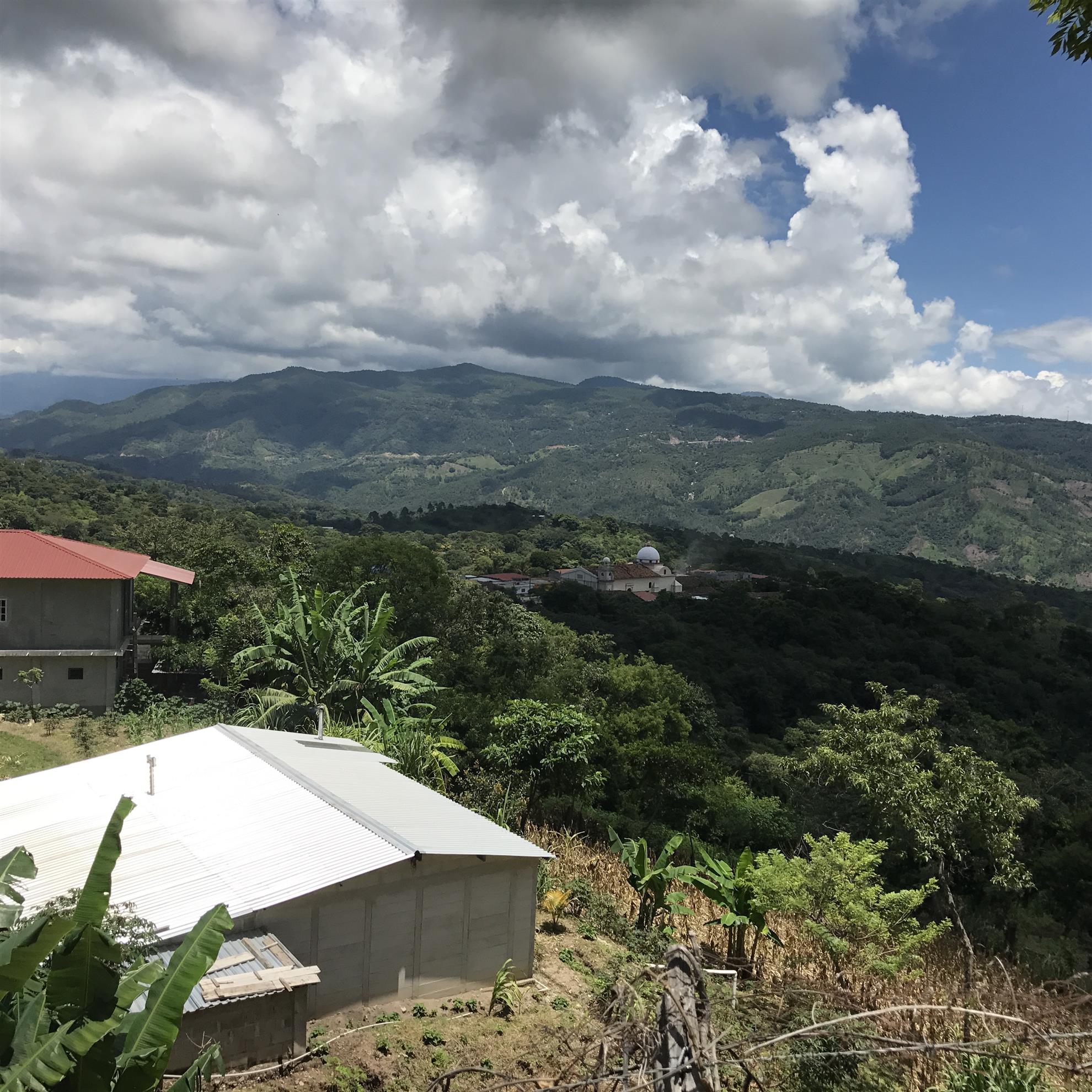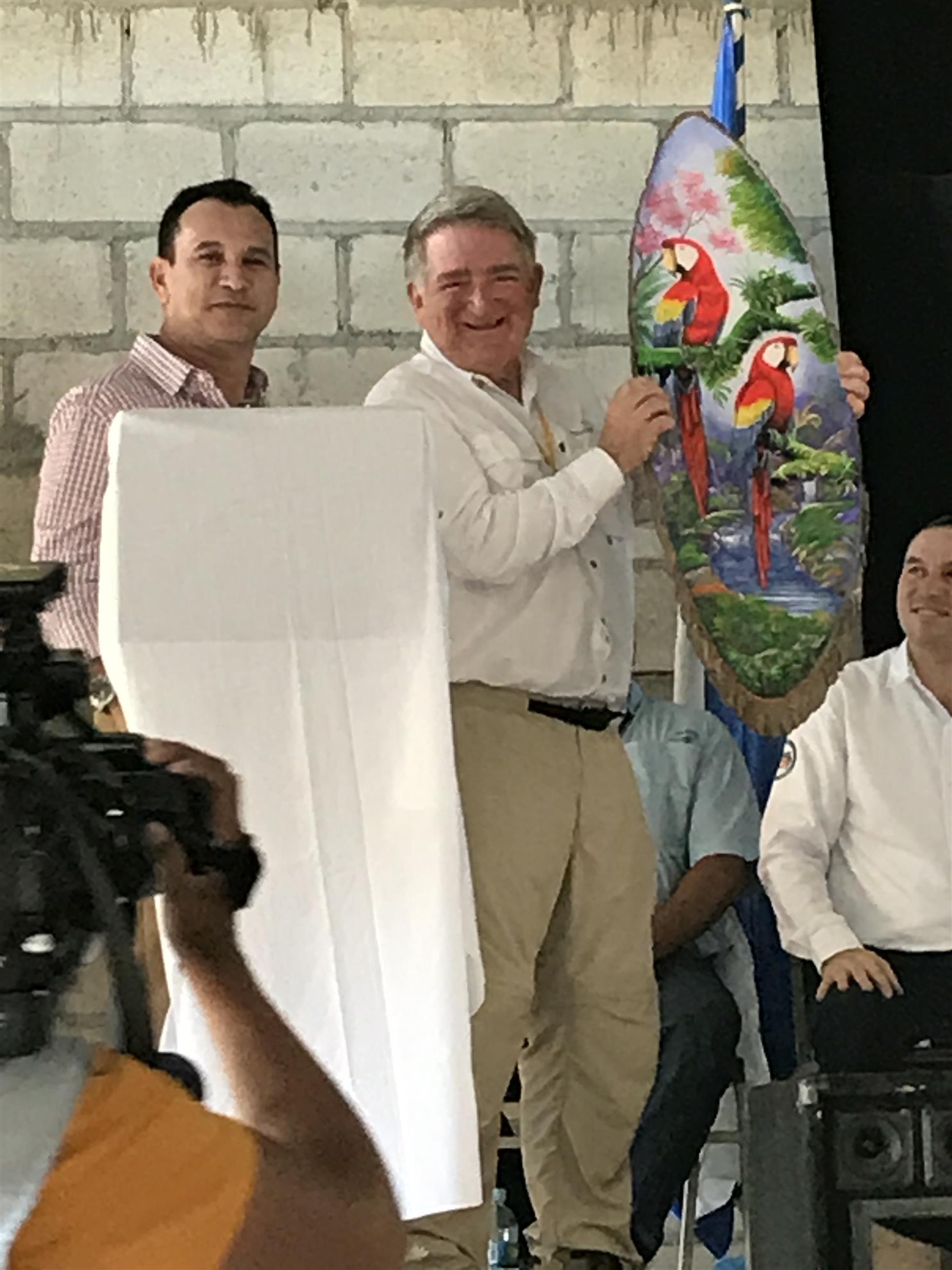From Past-DG Jim Nelson, who along with EMRC Rotarians Tom Gump and Paula Schwartz recently returned from Honduras.

We saw the good – generated by the previous Honduras project that many helped to fund – and the bad – additional communities in the same general area that are still waiting hopefully for help.
The good: We saw kids who now had sanitary facilities in their school, including latrines and wash stations; kids who could now regularly clean themselves in clean water. We saw a community serviced by a 30,000 gallon reservoir of water, which is now distributed to individual homes in the community. We saw a community that had an actual water filtration system to clean and purify what that would otherwise have too much sediment in their water to use. We saw really happy and grateful faces. One parent said now that the need for water is much more conveniently obtainable, now she has more time to be a parent to her kids.
More good: We were joined on this trip by Karen Cerebros from the Downtown Rotary Club of San Diego, who envisions a massive micro-finance project in the benefitted areas; now the women have time to pursue entrepreneurial activities in their communities, communities where the men work coffee plantations, which is very seasonal work.
Even more good: As a result of the host Rotary club’s work in the field on the prior water project, a new Rotary club was formed in the main municipality near the benefitted villages – 27 new Rotarians, 11 of whom are women. The micro-finance project and the new Rotary clubs were unintended but very exciting byproducts of the previous project.
Now the bad: We visited one of the communities that has no water available to it. They take their water from a polluted stream some distance from the village.
We visited a second community that does have some clean water for domestic use, but NO sanitation facilities. Most of the community defecates outdoors. They have had pits to collect sewage, but during the raining season the geology is such that the sewage backs up and runs all over the village. The sewage then runs off into a nearby creek. The creek is the water source for watering the crops. The crops are thus contaminated, making the crops unsalable outside the community. The mayor of this community said that perhaps worse than all of the physical and economic effects of this situation is simply the loss of dignity of their residents. The sadness of their residents who met with us was palpable.
Among the problems created by lack of water and sanitation facilities:
• Diarrhea and skin rashes
• Lack of privacy for girls in puberty, menstruation
• Absences from school resulting from the previous conditions
• Dengue and Zika
• Contamination of crops

Having seen the good, we KNOW that this is a project that can attain measurable, high-impact results, and we came back from our trip excited to be a part of a solution for thousands of Hondurans!
Edina Morningside Rotary jumped into the project this summer, with an initial $2500 to get initial matched funds released in partnership with several District 5950 clubs. We will continue to report what we accomplish together.